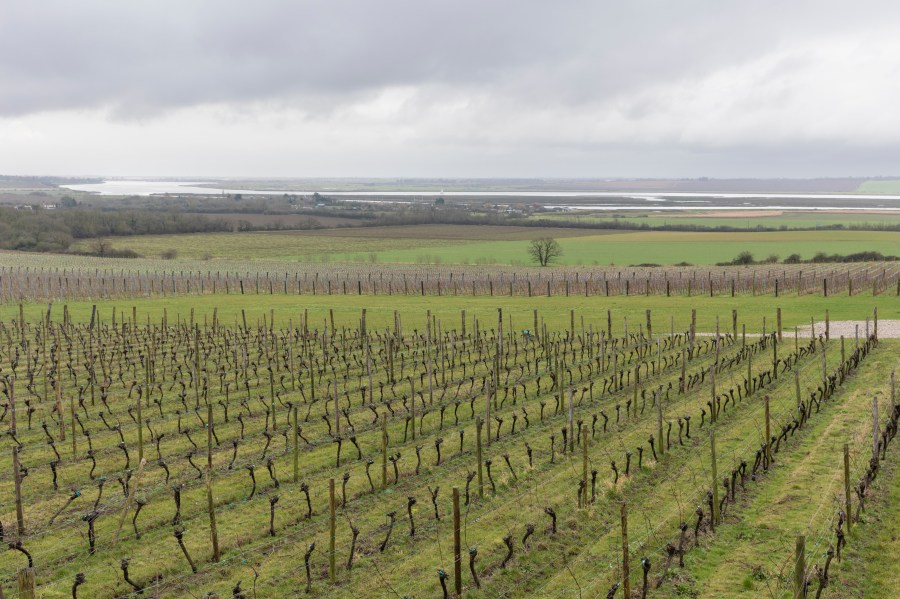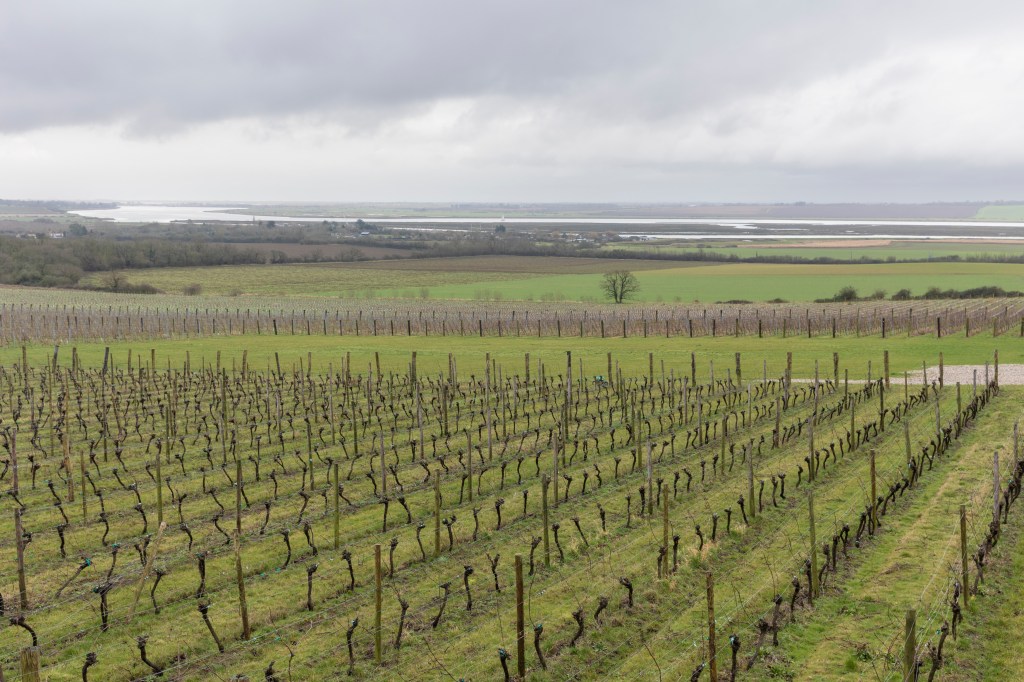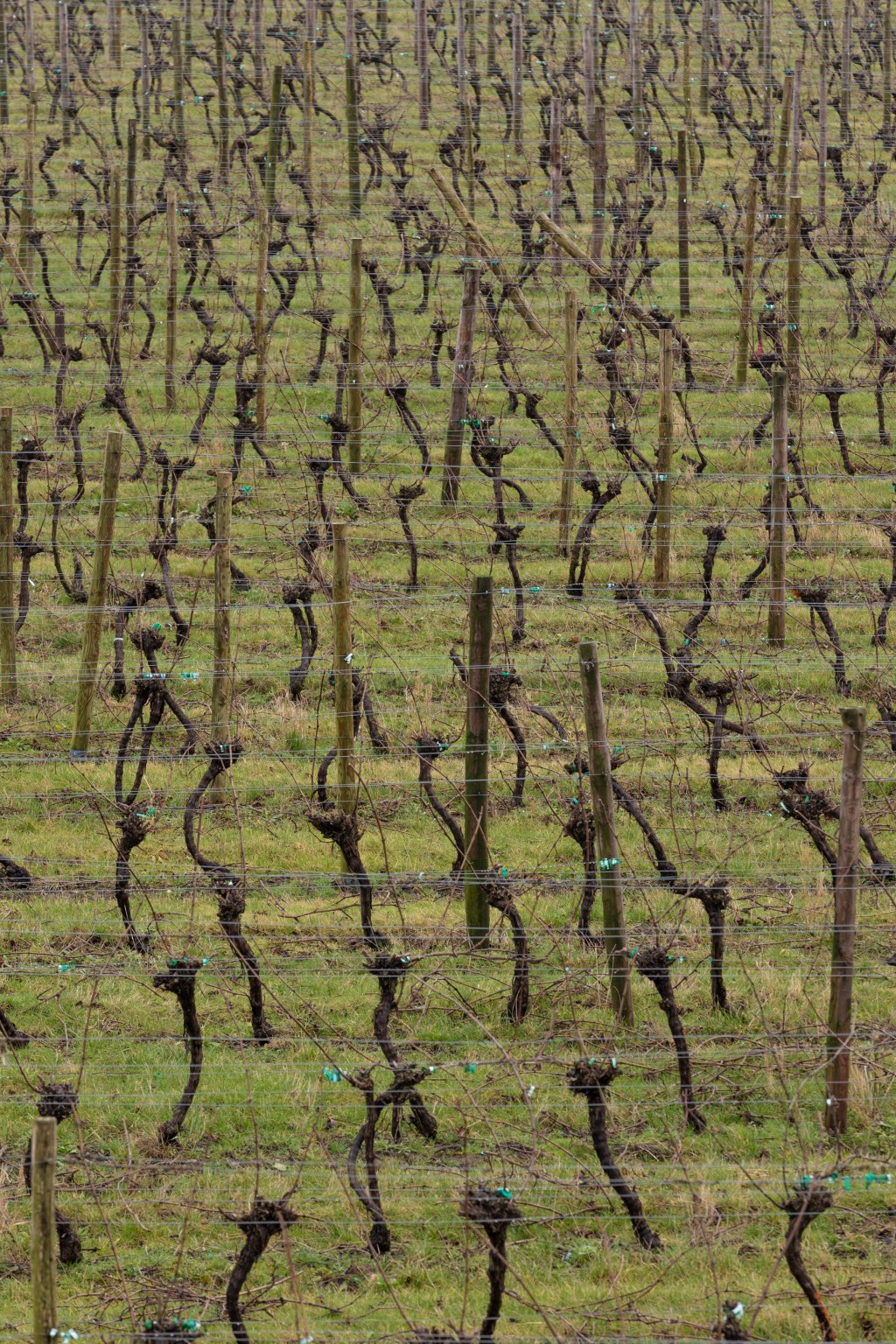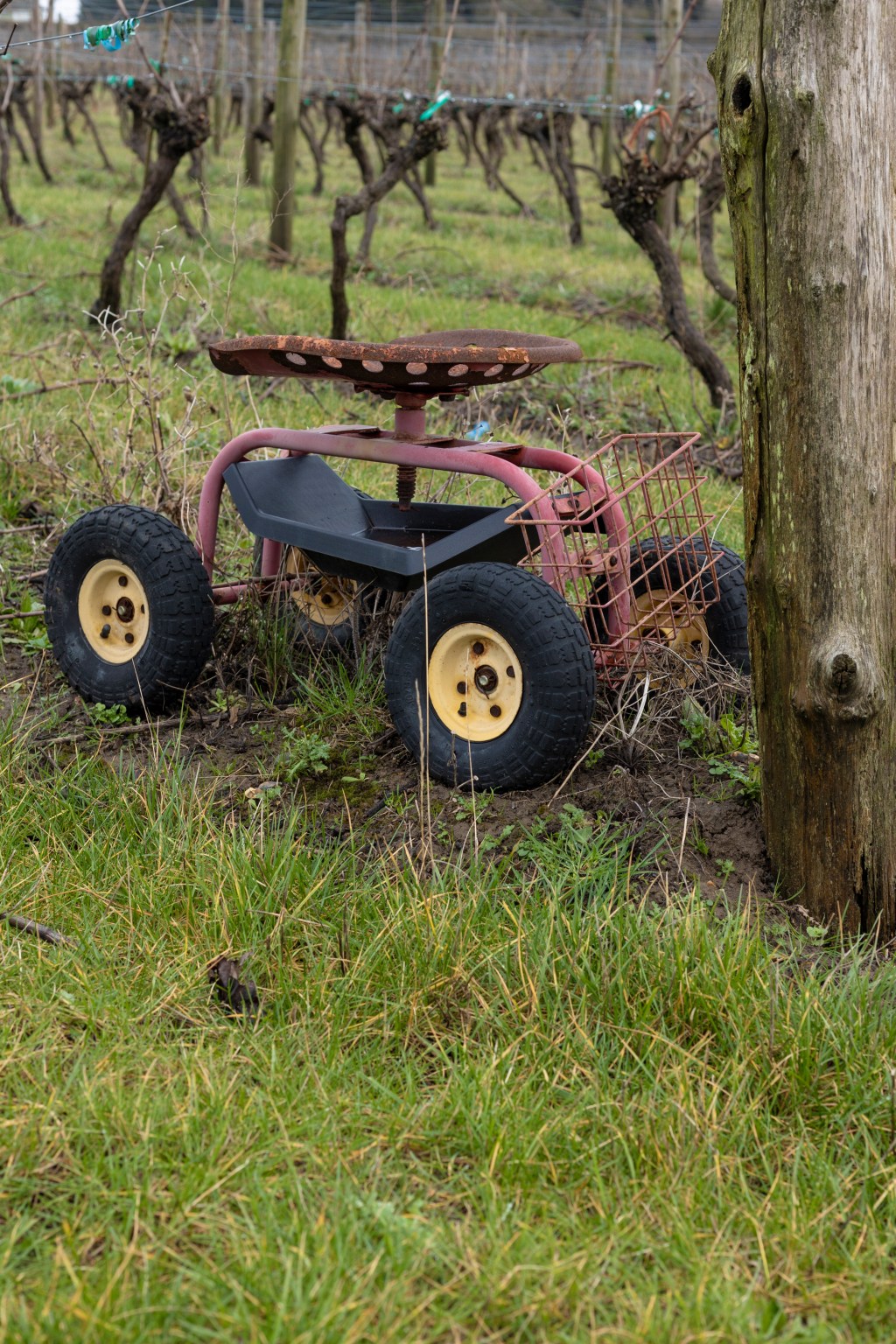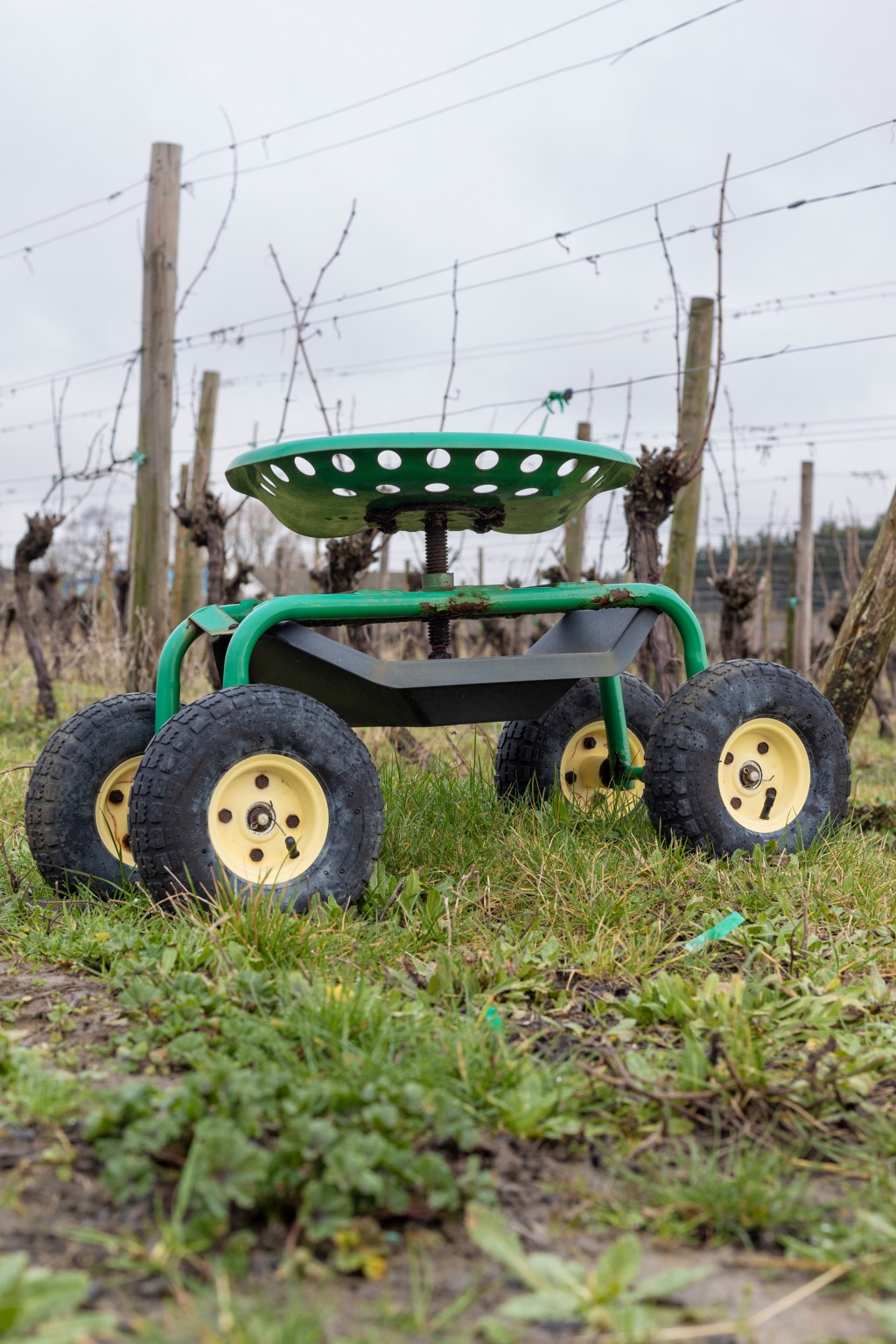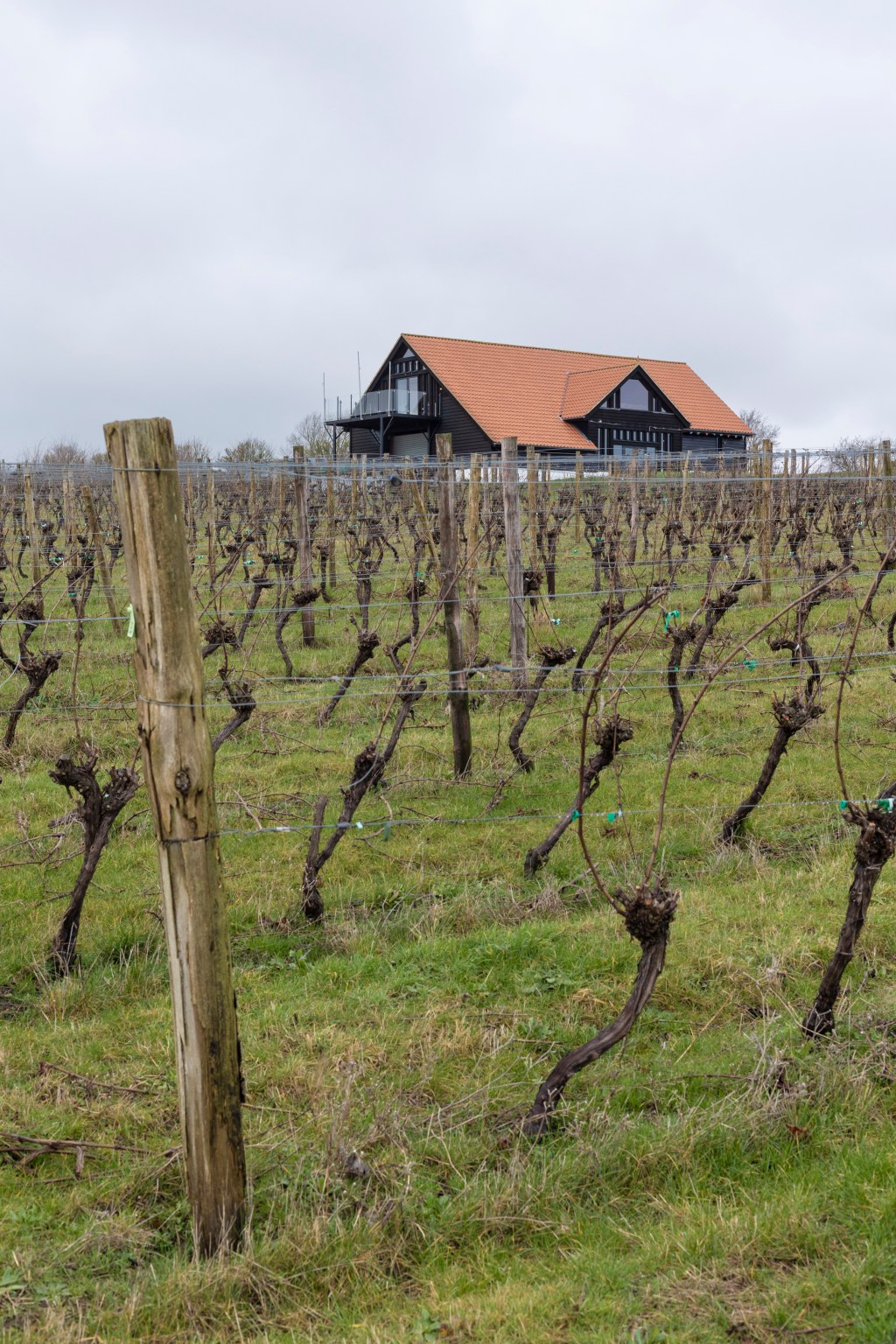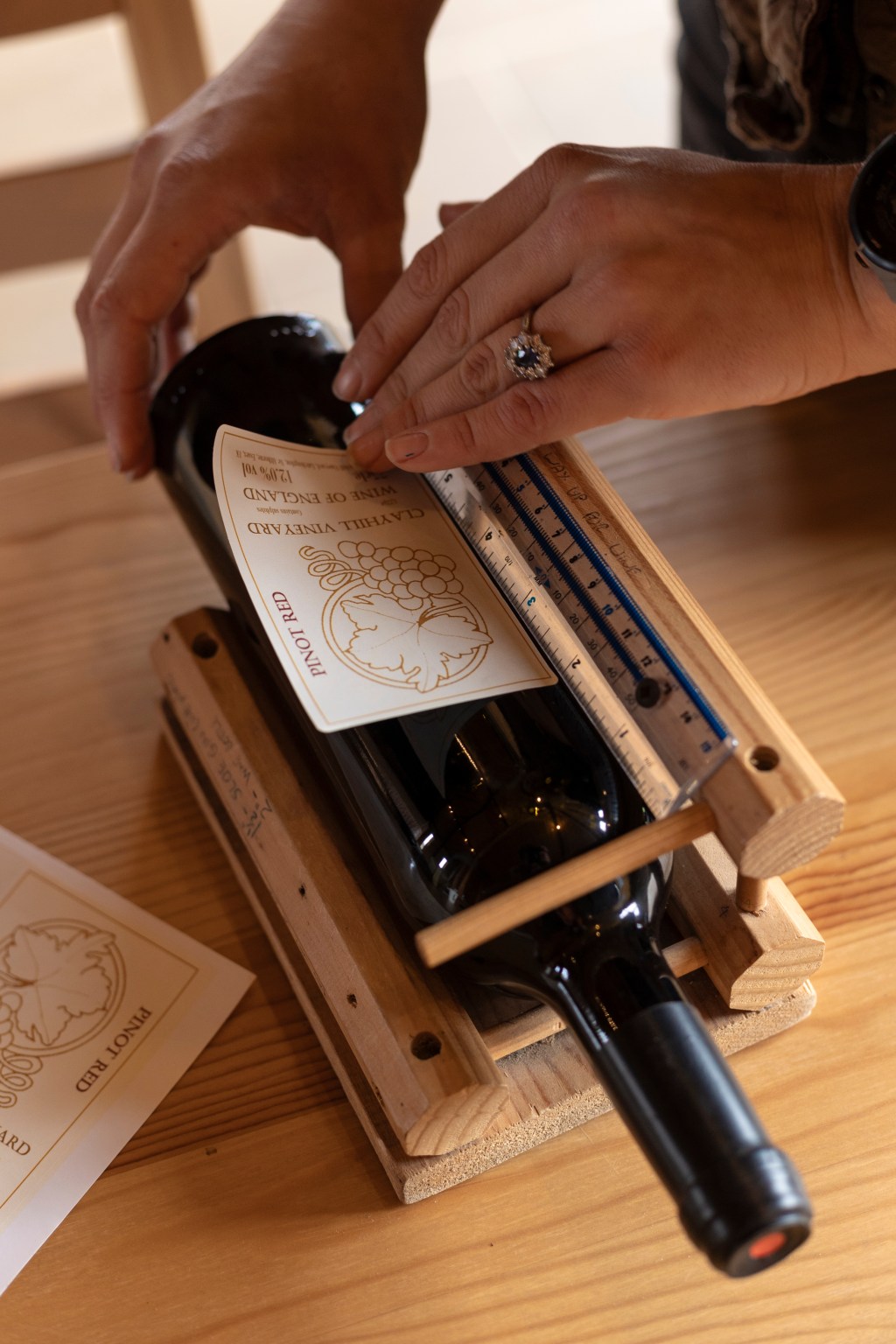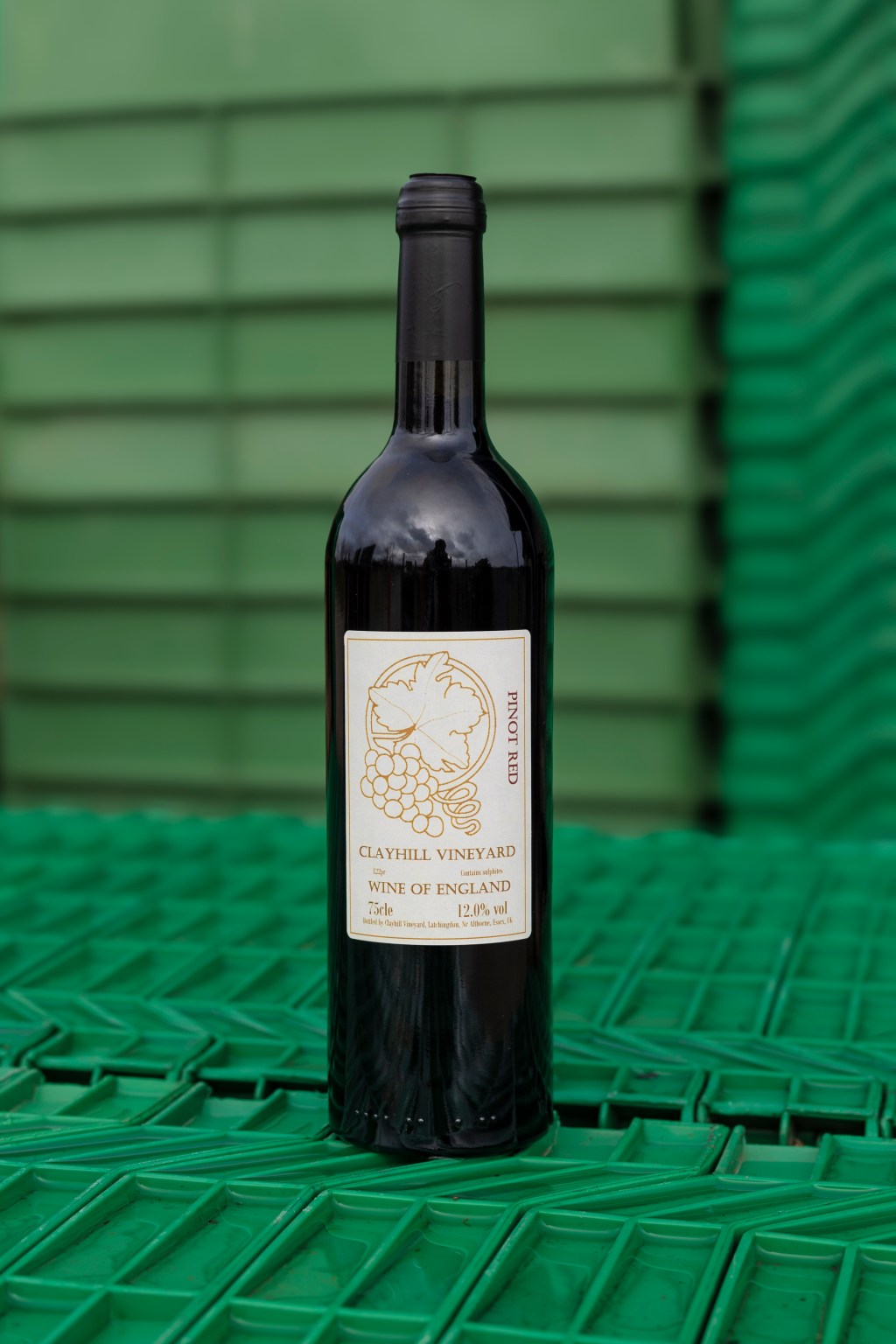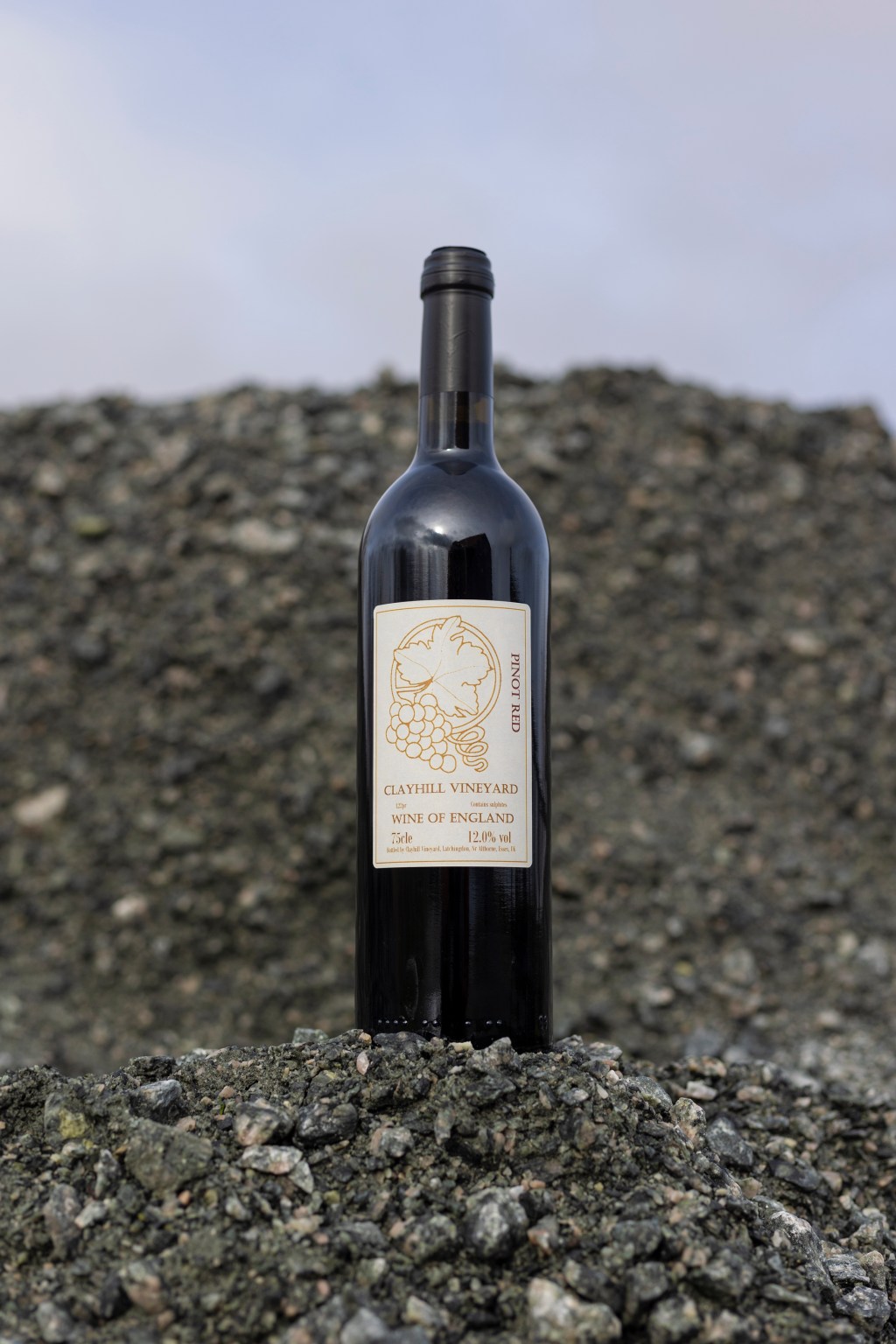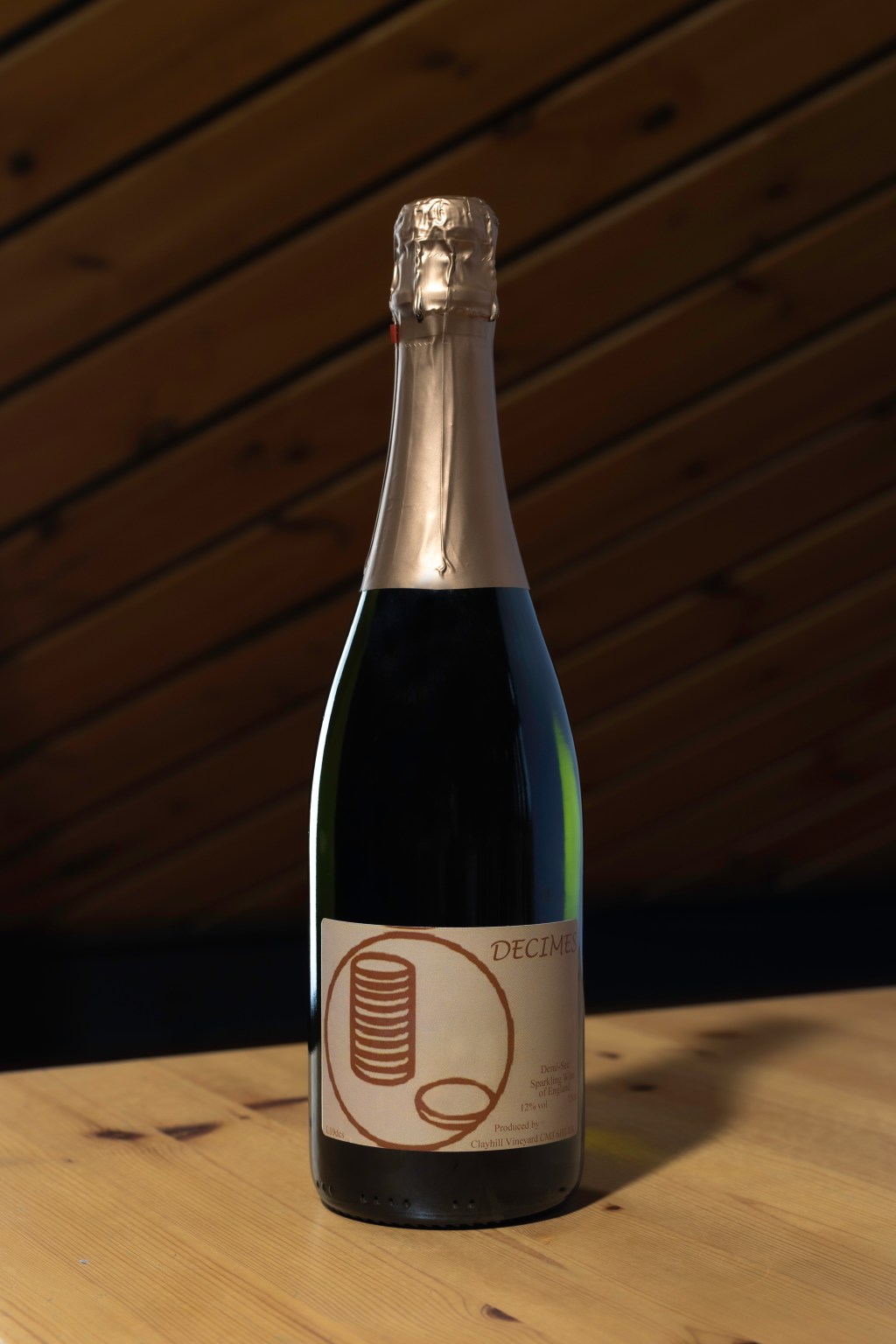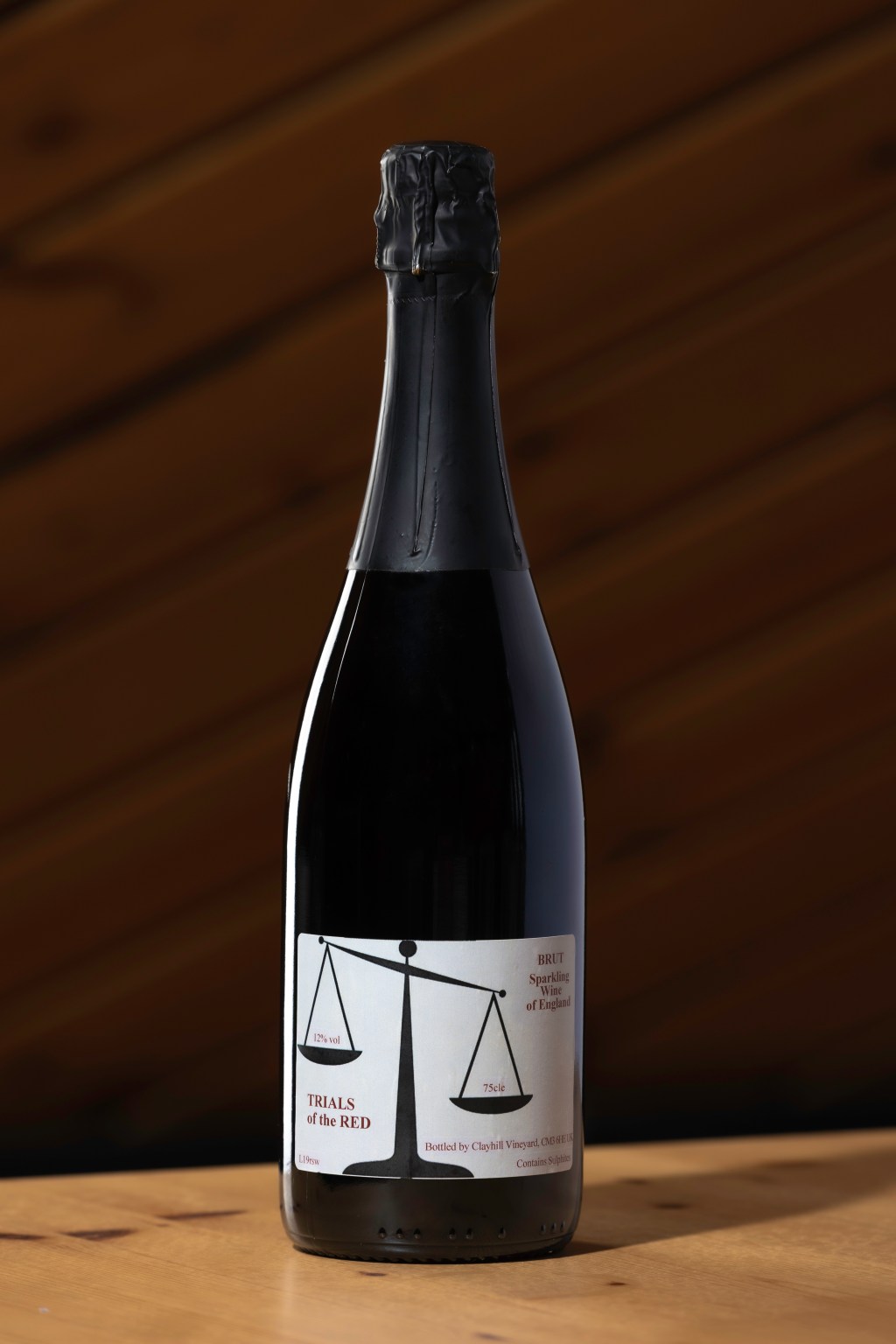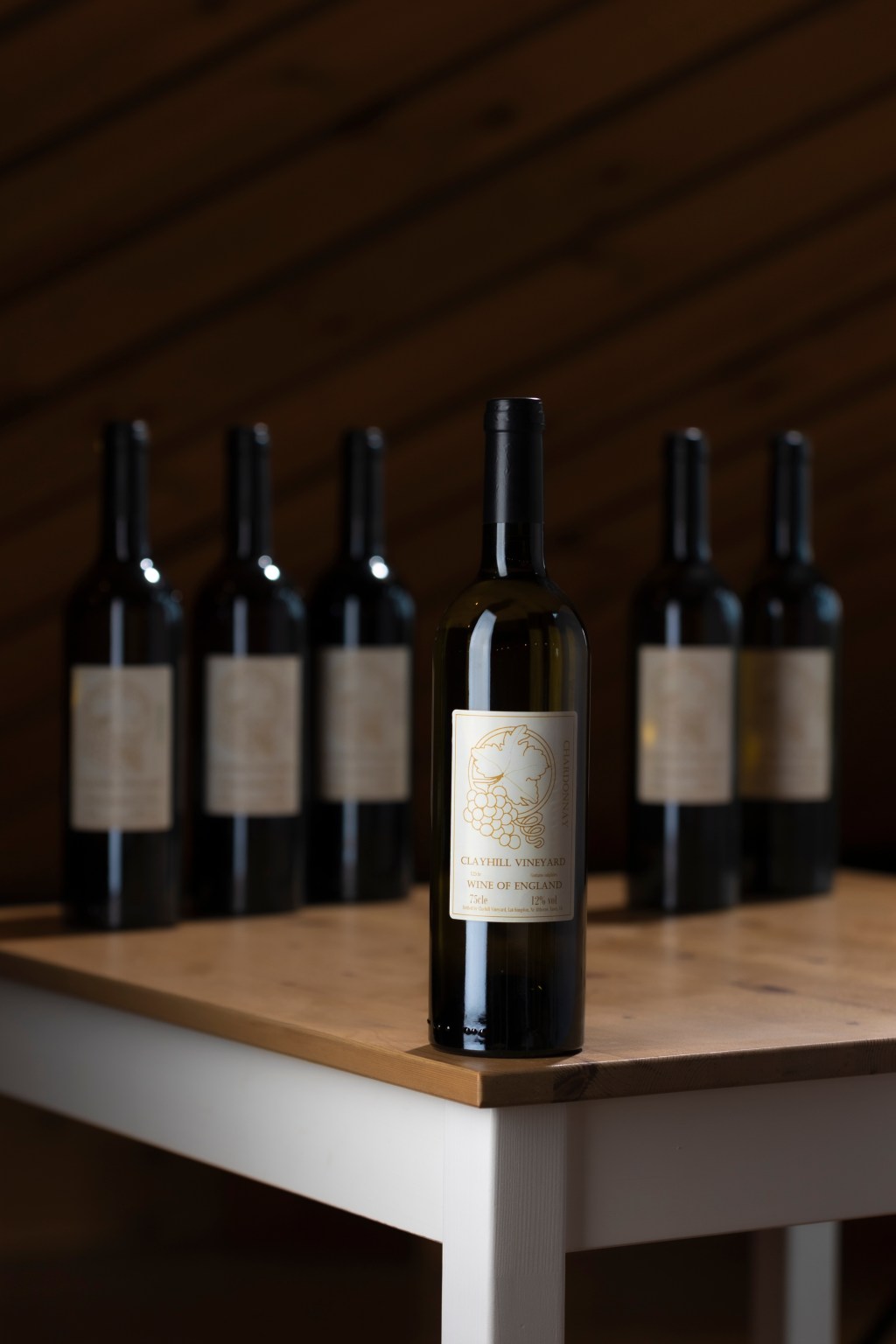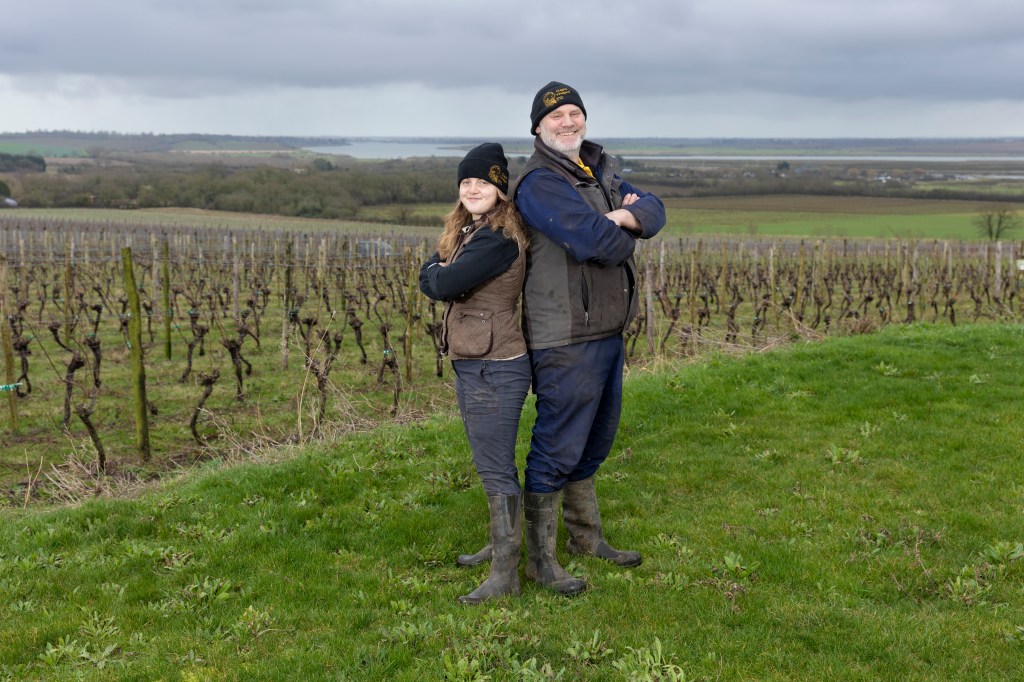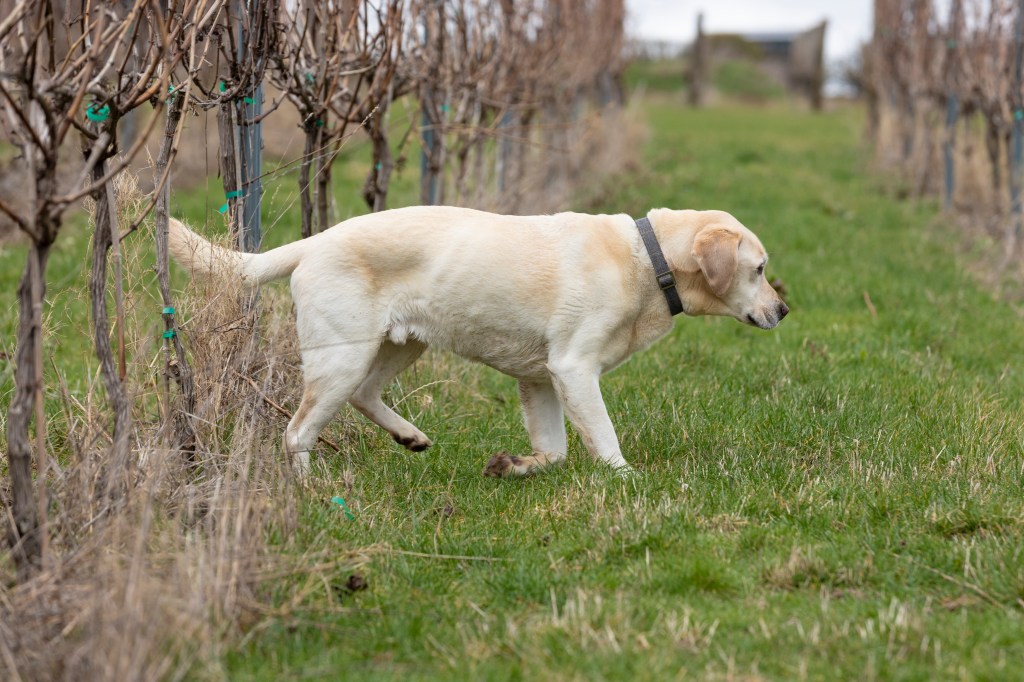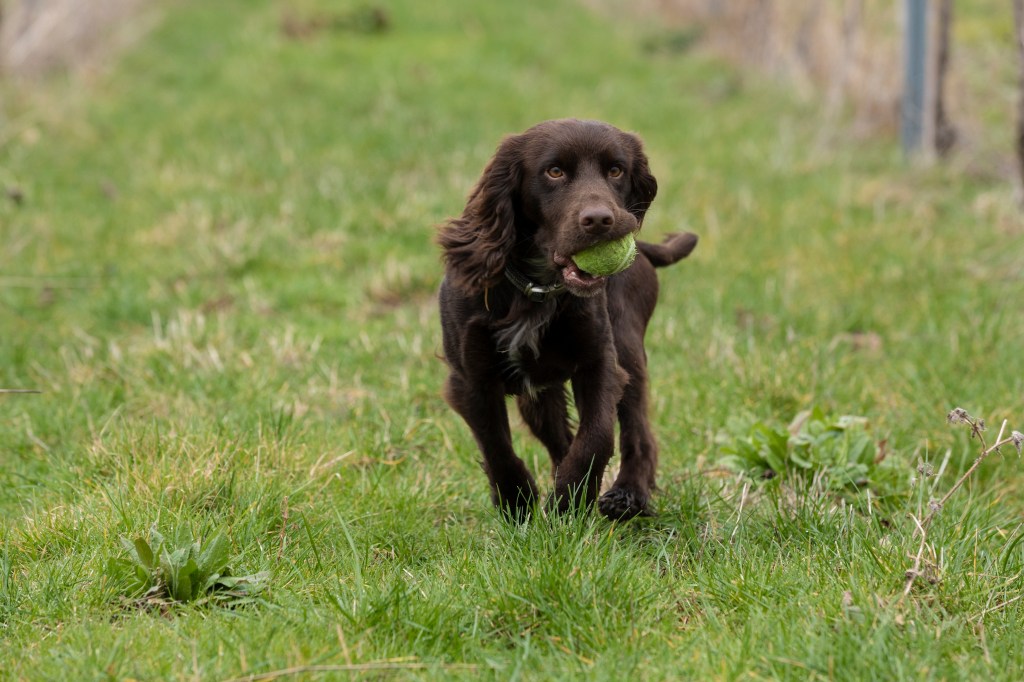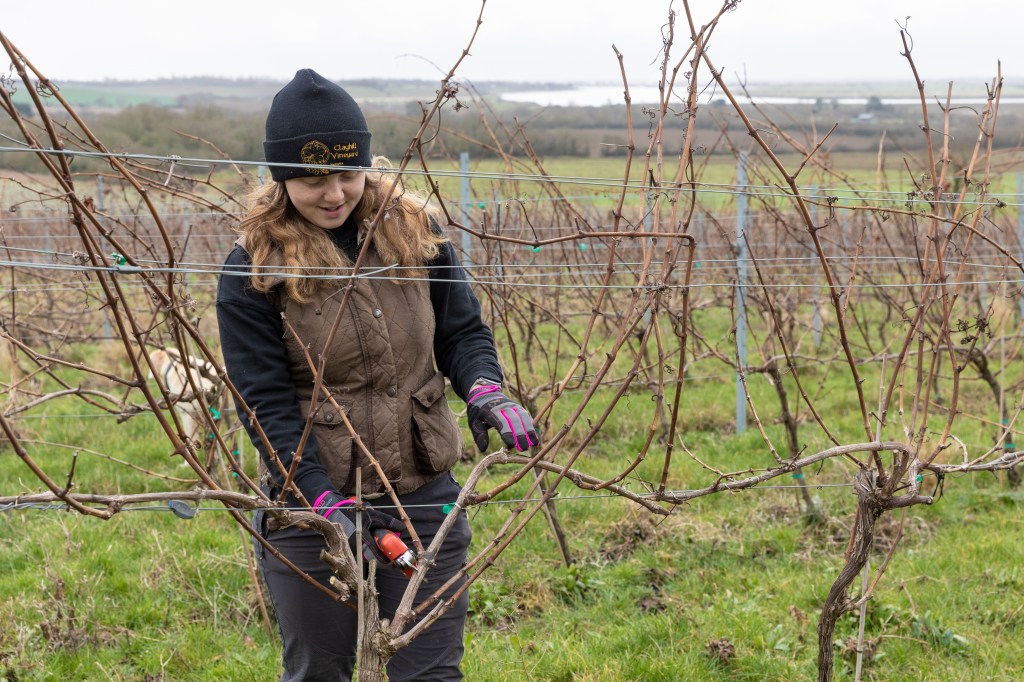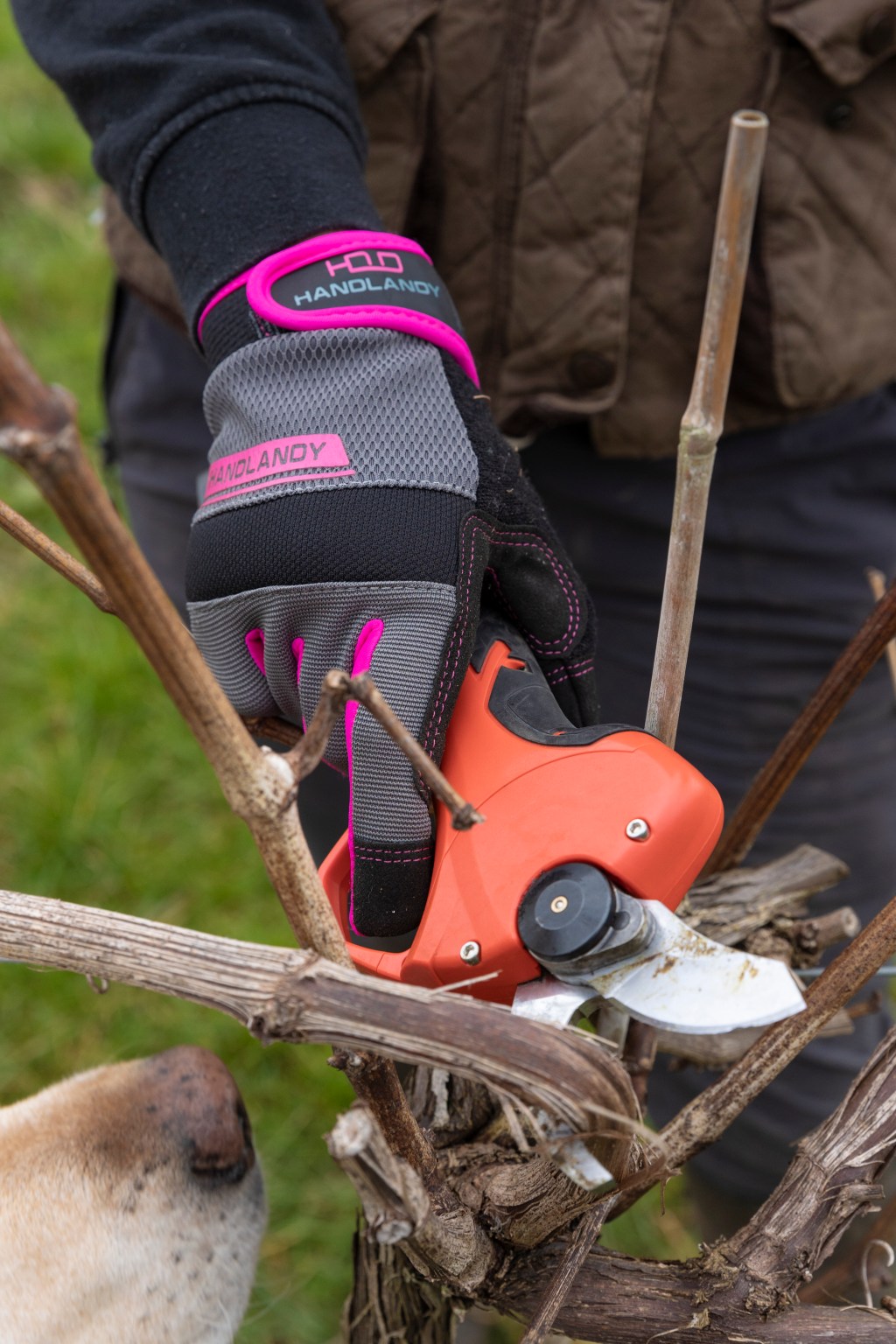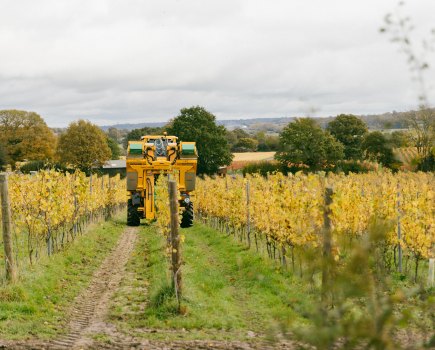There are so many unique aspects to Clayhill Vineyard, first is the fact that the vines were planted on the site in 2006.
At the time of planting the only other vineyard in the region was New Hall Estate, so it was a brave move to say the least, but what makes Crouch Valley farmer Dale Symonds’ story truly unique is that his family farm at Clayhill has been a successful mixed farming enterprise for decades, but he is now not only a contract grape grower but also a wine maker with his own on site winery.
Dale explained: “I was a student at Plumpton when they planted the original vines and the students all got involved in that. I would have always regretted it if I had not planted the vines at Clayhill.” As the number of vineyards has expanded in the region that regret is gratefully not something that Dale has to live with. Instead, the vineyard has grown to 30 acres since 2006. The vineyard is to grow a further 20 acres next year.
Dale points to the 20 acre block that is already being prepared for the new vines. This land has been taken out of the arable rotation of the mixed family farm.
The farm has been in Dale’s family for decades as his father moved from Cornwall to farm the land in the Crouch Valley over 60 years ago. Dale is very stoic as he explained that in general consumers are not willing to pay more for the price of bread but they will pay a premium for a bottle of wine. “We have diversified to keep the farm going,” said Dale.
“In 2005 the wheat price had become very low and I saw an article in a magazine about the English Wine Group looking for growers to contract grow grapes. I had always joked with my dad that with the climate we should be planting oranges and olives but we went for vines instead,” said Dale with a chuckle.
Lizzy Tresadern has worked for the family enterprise for nine years now enjoying her work in the vineyard, but her story started quite differently. “Back in 2015 I was looking for an apprenticeship,” explained Lizzy. At that point the farm had a pig enterprise and in conjunction with a course at Writtle college Lizzy joined the business.
Both Dale and Lizzy talk about how everyone gets involved with all aspects of the farming enterprise. “On a Friday I would spend all day in the vineyard and in 2017 I was involved in the planting of 10 acres of vines,” said Lizzy.
When the pig enterprise had to close in 2019 due to prices being unsustainable Lizzy moved full time to the vineyard. “We were all sad to see the pigs go,” she said. This full time move to the vineyard may not have been part of the original plan but it has proved a good move for Lizzy who is now involved in the whole process ground to glass.
Like all good viticulturists and winemakers she has an eye for the details. Lizzy explained that she absolutely loves the vineyard work but that she also finds the artistic side of winemaking really rewarding.
In the villages surrounding the vineyard are numerous posters that state in bold letters ‘Don’t Kill the Crouch Valley’ which is a campaign that is opposed to a large housing development that would literally blot what is currently a beautiful undulating gentle view of the River Crouch. For his involvement in this campaign Dale has been nominated for a Countryside Alliance Award.
It is clear from a discussion on this subject that Dale is not opposed to development providing it is sympathetic and blends with the surroundings. It is the wholesale destruction of the beauty of the local landscape to which he is opposed.
The vineyard sits between the River Blackwater and the River Crouch and it is this that gives a unique environment to the Crouch Valley area. Sitting on London Clay Dale explained that even the areas farmed locally have a different soil type to that on which Clayhill Vineyard is planted. This is one of the things that gives the grapes grown at Clayhill their unique character. Most of the vineyard is planted at a density of 1,500 plants per acre but “the new plantings are slightly higher as they are specifically planted for premium still wines” explained Dale.
Dale was clear that he did not want to limit his options. The original vines were planted under a contract agreement with a vineyard in Kent and that agreement still exists. “They have been great to work with and they are a great team,” said Dale. Those original vines were Chardonnay and Pinot Noir. That original planting had 13 clonal rootstocks; since no two growing seasons are the same Dale was ensuring that the whole vineyard would never suffer at the same time. “We planted using Burgundian clones which at the time was an unusual choice,” he added.
It is clear that at Clayhill vineyard there is much that is unusual. The influence of a mixed farming enterprise is evident in many ways. Dale explained that he undertook an intensive course at Plumpton to understand what the winemakers would want from him as the grower, which shows how he was really committed not just to producing the best crop he could but also to fulfilling the needs of his customers. Over the years Clayhill Vineyard has worked with many wineries and Dale made it clear that he will always err on the side of caution when it comes to crop estimates. The vineyard consistently yields on average 3.8 tonnes/acre across the varieties. “If I make a promise to deliver a certain quantity of fruit I will stick to it,” said Dale earnestly.
It is not always an easy balance between the farming interests and the commercial vineyard operation. For example whilst Dale explained that the grapes produced for sparkling wine production (about 50% of the total area) are relatively easy those produced for still wine are more stressful as the extra hang time they require gives the team “more to panic about.” Added to this, some seasons produce stresses in other areas of the farming enterprise. For example, on the back of three wet winters in 2013 it was a struggle to get the harvest off the fields “there is a balance between what the vineyard needs and the farm needs” said Dale.
Another area that shows the influence of other agricultural operations on the commercial vineyard is in the machinery that the vineyard has which includes a “homemade canopy trimmer that utilises combine side knives,” said Dale. Whilst he is content with this piece of kit there is still a shopping list for the vineyard including a shoot remover and an inter row cultivator and then further into the future a pre-pruner as both Dale and Lizzy feel this would bring significant efficiency savings.
With a clear vision for the future Dale did not want to limit the options at Clayhill to planting vines that were suitable only for sparkling or only for still. “In 2006 I wanted to plant Bacchus but I could not get an agreement from anyone who would buy it,” said Dale. “I would not plant without somewhere to send the grapes,” he added. Bacchus did finally get planted at Clayhill vineyard in 2017 along with Reisling, Pinot Gris and some other varieties.
Speaking in the vineyard about pests and diseases it is clear that there are not many predators that Lizzy and Dale have to deal with. The typical predators such as birds, deer and badgers have not been a problem here and the vineyard has never suffered a frost event. In terms of disease Dale said that the Chardonnay can be susceptible to powdery mildew and in the growing season Lizzy walks the vineyard everyday. “She is the eyes on the ground in the vineyard,” said Dale warmly showing how much he really values those who work with him in this venture.
This includes Tom Hammond who started a Vine Manager Level 3 Crop Technician apprenticeship at Plumpton College in January 2024. After his GCSE’s Tom who like Lizzy is local but not from an agricultural background came to the vineyard for some experience and found he loved working on the vineyard. Tom approached Dale with the idea of starting an apprenticeship with Clayhill Vineyard and is really enjoying his new role. “I wanted to take on an apprentice but had been waiting for the right person,” said Dale.
“It is enjoyable to learn something and then be able to use what you have learned,” said Tom. Speaking with Tom about his first harvest experience he said: “There is a real community feel and it is hard work but there is a sense of energy from everyone.”
Clayhill Vineyard offers employment at harvest to a cross section of the local community. “We have a real mix of people including some who fit picking around the school run so on picking days there are people coming and going alongside those who are in the fields all day,” said Dale. Energy levels are also supported by Dale’s mum and his mother-in-law who between them supply both sweet and savoury sustenance for the vineyard workers.
Clayhill Vineyard has its own winery which has allowed the vineyard to embrace the art of winemaking. This is situated on the farm (in an adapted butchers shop) so the grapes have a very short distance to travel. The number of bottles Clayhill produces is small but has grown every year. Dale and Lizzy now produce wine in every variety that they grow. Dale was at first reluctant to produce a sparkling wine “but it was not as scary as I thought,” he said laughing. Having overcome his initial reticence he soon embraced the unusual with a sparkling red Pinot Noir aptly named “The Trials of the Red.”
Visitors to the onsite café (opened in 2017) benefit from being able to try one of the 11 wines on the menu. There are three sparkling wines including Decimes and Messenger, both these wines are made with Chardonnay and Pinot Noir but differ in the amount of lees aging with Decimes receiving up to 36 months on lees. The third sparkling wine produced is the previously mentioned Pinot Noir sparkling red.
The still wines are all varietal with Chardonnay, Reisling, Pinot Gris, Bacchus and Auxerrois as the white wines with two versions of Pinot Noir Rosé and finally a Pinot Noir Red. There really is something on the menu for every palate.
Whilst the first trial wines were produced in 2009 the first commercial wines were released in 2010. “Originally we produced 250 litres of our own wine but this has now increased to 250 litres of every variety,” explained Dale.
It is not just in the winery that Clayhill adopt the theme of trials and in answer to my questions about the varieties that are to be found in the vineyard Dale and Lizzy exchange glances and it is clear there are developments ahead for the future of this vineyard. Lizzy let slip that Sauvignon Blanc is her favourite variety to work with. “You look out in the vineyard and see this patch of bright green the vines are so happy,” she said with a smile. Dale explained: “The trial varieties are planted in blocks of four 100m rows which gives us enough to play with” but as to what those varieties might be he would not be drawn into discussion. He did intimate that as respects the varieties there are some that are outside of the norm for the UK. When talking it is clear that Dale researches each trial variety carefully looking for profiles similar to those that already work well on the site. Think less Pinot Noir and more Viognier is the only hint he will divulge.
That there is much patience involved in viticulture is beyond doubt but at Clayhill the patience Dale and Lizzy have shown has really brought benefits. “When the first wines were produced from the Pinot Gris I felt they were a little underwhelming,” said Dale but with time both the wines and the vines are now performing exceptionally. Lizzy explained that in the café the Pinot Gris is particularly popular. For any vineyard and winery that ability to get feedback directly from the consumer is invaluable.
The café is open every weekend throughout the year except for the month of January when the café shuts for repairs. The café is also the ideal place for the vineyard to host a string of events including a monthly cheese and wine evening. The café is run by Amy and Lizzy has taken over the social media and organising the events. I find myself wondering if the visitors are aware that the grapes grown on the vines they can see from the café are part of some of the most well known and extra special award winning wines in England.
On this subject Dale is quite stoic. He recounted how he had once spoken to another grower, who had produced grapes under contract that went on to produce award winning wines, about how no one knew who had grown the grapes. “The grower told me that it was OK because he knew that they were the grapes from his vineyard and that was enough and I feel exactly the same, I know who grew those grapes,” he said as he pointed to the block of Chardonnay vines which have a very special place in his heart.
Trying to encapsulate all that this wonderful vineyard has to offer it feels like Clayhill Vineyard is the commercial vineyard with the heart of a family and a creative mind. Perhaps this is the perfect combination to nurture confidence and the freedom to push the boundaries and gather momentum.
- Lizzy Tresadern and Dale Symonds

